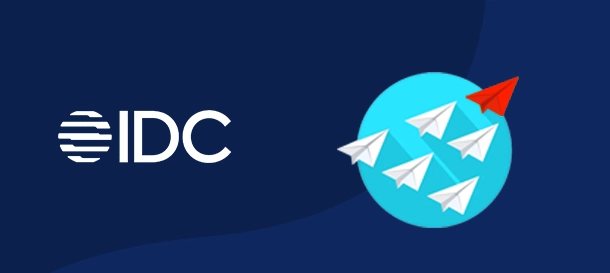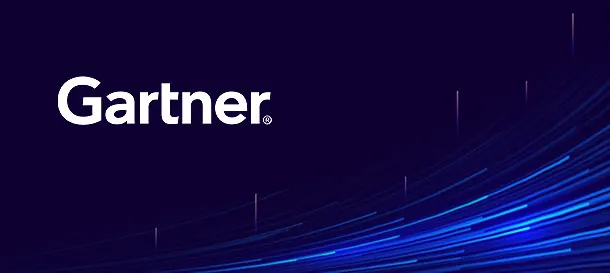In today’s rapidly evolving financial landscape, checks remain a fundamental tool for transactions, offering a secure and traceable method for transferring funds. This comprehensive guide delves into the intricacies of checks, exploring their definition, components, various types, and the role of modern solutions like Emagia in enhancing check processing.
What is a Check?
A check is a written, dated, and signed instrument that directs a bank to pay a specific sum of money to the bearer or a designated individual or entity. It serves as a promise from the payer to the payee, facilitating the transfer of funds without the need for physical cash. Checks are widely used for various purposes, including personal expenses, business transactions, and payroll distributions.
Components of a Check
To fully comprehend the functionality of a check, it’s essential to understand its key components:
- Date Line: Indicates the date when the check is written. This is crucial as checks are typically valid for a certain period, often six months from the date of issuance.
- Payee Line: Specifies the individual or entity to whom the payment is made. Accuracy here ensures that the funds are directed to the correct recipient.
- Amount Box: Displays the payment amount in numerical form. This must match the written amount to prevent discrepancies.
- Amount Line: States the payment amount in words. This serves as a confirmation of the numerical amount and is used by banks to verify the intended payment.
- Memo Line: Provides space for notes or the purpose of the payment. While optional, it can be useful for record-keeping.
- Signature Line: Requires the payer’s signature to authorize the transaction. Without this, the check is invalid.
- Routing Number: A nine-digit code that identifies the financial institution responsible for processing the check. It’s located at the bottom left of the check.
- Account Number: Specifies the payer’s account from which funds will be drawn. This is located next to the routing number.
- Check Number: A unique identifier for the check, aiding in tracking and record-keeping.
Different Types of Checks
Checks come in various forms, each designed to meet specific needs and provide different levels of security and convenience. Below are some of the most common types:
- Personal ChecksPersonal checks are issued by individuals from their personal checking accounts. They are commonly used for everyday expenses such as rent, utilities, and groceries. However, personal checks can bounce if there are insufficient funds in the account, leading to potential fees and penalties.
- Certified ChecksA certified check is a personal check that the issuing bank has verified and guaranteed. The bank confirms that the account holder has sufficient funds and places a hold on the specified amount until the check is cashed. This provides greater security to the payee, ensuring the check will not bounce due to insufficient funds.
- Cashier’s ChecksCashier’s checks are issued by a bank and drawn on the bank’s own funds. The bank takes the amount from the payer’s account and assumes responsibility for the payment. These checks are often used for large transactions, such as purchasing a car or real estate, due to their high level of security and guarantee.
- Traveler’s ChecksTraveler’s checks are pre-printed, fixed-amount checks designed for travelers. They function as cash but can be replaced if lost or stolen, providing security during travel. While their usage has declined with the advent of credit and debit cards, they are still available and accepted in many places.
- Money OrdersMoney orders are prepaid checks purchased from financial institutions, post offices, or retailers. They are often used when the payer does not have a checking account or when a guaranteed form of payment is required. Money orders are typically limited to smaller amounts and may come with fees.
- Electronic Checks (E-Checks)Electronic checks, or e-checks, are digital versions of traditional paper checks. They allow for the online transfer of funds from the payer’s account to the payee’s account. E-checks are commonly used for online bill payments and direct deposits, offering a faster and more convenient alternative to paper checks.
- Payroll ChecksPayroll checks are issued by employers to compensate employees for their work. These checks can be either paper checks or direct deposits into the employee’s bank account. Payroll checks often include detailed information about the employee’s earnings and deductions.
- Bearer ChecksBearer checks are made payable to “bearer,” meaning any person in possession of the check can cash it. These checks are risky because they can be cashed by anyone who holds them, making them susceptible to theft or loss.
- Bank DraftsBank drafts, also known as banker’s checks, are similar to cashier’s checks but are drawn on the issuing bank’s account. They are often used in international transactions and provide a secure method of payment, as the funds are guaranteed by the bank.
- Certified Bank ChecksCertified bank checks are a combination of certified and cashier’s checks. The bank verifies that the funds are available and sets them aside, guaranteeing payment. These checks are used in situations where the payee requires assurance of the check’s validity.
How Emagia Enhances Check Processing
In today’s fast-paced financial environment, efficient and secure check processing is crucial for businesses. Emagia offers advanced solutions that streamline the management of various types of checks, ensuring accuracy and compliance. By leveraging Emagia’s technology, businesses can automate check processing, reduce errors, and enhance overall financial operations.
Frequently Asked Questions
What is the difference between a cashier’s check and a certified check?
A cashier’s check is issued and guaranteed by the bank, drawn on the bank’s own funds. In contrast, a certified check is a personal check that the bank has verified and guaranteed by confirming that the account holder has sufficient funds and setting aside the amount until the check is cashed.
Are electronic checks secure?
Yes, electronic checks are secure. They use encryption and other security measures to protect the transfer of funds and personal information. However, it’s essential to use reputable platforms and monitor your accounts regularly to prevent unauthorized transactions.
Can I write a personal check for a large purchase?
While you can write a personal check for a large purchase, it’s often advisable to use a cashier’s check or certified check. These types of checks provide greater security to the payee, as they are guaranteed by the bank and reduce the risk of insufficient funds.
What should I do if I lose a traveler’s check?
If you lose a traveler’s check, contact the issuer immediately. Traveler’s checks can typically be replaced if lost or stolen, provided you have the necessary documentation and have followed the issuer’s procedures.
Are money orders the same as cashier’s checks?
No, money orders and cashier’s checks are different. Money orders are prepaid and typically used for smaller amounts, while cashier’s checks are issued by a bank for larger sums and are drawn on the bank’s own funds, providing a higher level of security.
Understanding the various types of checks and their specific uses is essential for effective financial management. Whether you’re making everyday purchases, handling large transactions, or traveling abroad, choosing the appropriate type of check can provide security and convenience in your financial dealings.







